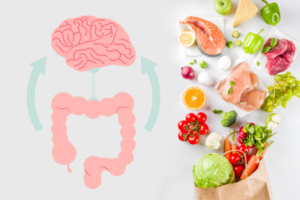30 Nov The Unseen Connection: Stress and Acid Reflux
How Stress and Acid Reflux are Linked
In our fast-paced world, stress has become an omnipresent force that affects us in various ways. One lesser-known but significant consequence of chronic stress is its impact on our digestive system, leading to conditions like acid reflux. Understanding the intricate relationship between stress and acid reflux can help us better manage our health and well-being. In this blog post, we’ll delve into the science behind this connection and explore practical strategies to mitigate its effects.
Stress and Its Effects on the Body
Before we dig deeper into the relationship between stress and acid reflux, it’s crucial to understand how stress can impact our bodies. Stress triggers the body’s “fight or flight” response, leading to the release of stress hormones like cortisol and adrenaline. These hormones prepare the body to react quickly to a perceived threat. In small doses, this response can be helpful, but chronic stress can lead to a wide range of health issues, including digestive problems.
“Your body has an entire stress response system that is hardwired to protect you from danger. Its lookout station is in your brain and its basecamp is your adrenal glands. It’s existed for millennia and is meant to protect you from immediate danger.
But when you’re in a state of constant stress, like too many of us are, the body perceives this as a persistent low level of danger, the stress response system stays in the “on position,” and this leads to a host of symptoms, and potentially, health problems. If there’s ever a time we’re collectively feeling this constant underlying stress, it’s now.” -Aviva Romm, MD
The Gut-Brain Connection
The gut-brain connection is a fascinating and complex network that links the brain and the gastrointestinal system. This communication system allows for the bidirectional flow of information between the two, meaning that your gut health can influence your mental state and vice versa.
When you’re under stress, your body’s stress response can have a direct impact on your digestive system. Stress can lead to a variety of gastrointestinal symptoms, such as nausea, bloating, GERD, and changes in bowel habits. It can also disrupt the normal functioning of the lower esophageal sphincter (LES), which plays a crucial role in preventing stomach acid from flowing back into the esophagus.
Read more about the fascinating connection of the vagus nerve to our health here!
The Stress-Acid Reflux Connection
Now, let’s explore how stress and acid reflux are linked:
- Weakened Lower Esophageal Sphincter: Chronic stress can weaken the LES, making it less effective in preventing stomach acid from refluxing into the esophagus. This can lead to the burning sensation and discomfort associated with acid reflux.
- Altered Digestive Rhythms: Stress can disrupt the normal rhythm of digestion, slowing down the movement of food through the digestive tract. This can result in food lingering in the stomach for longer periods, increasing the likelihood of acid reflux.
- Increased Acid Production: Stress hormones like cortisol can stimulate the production of stomach acid. This excess acid can exacerbate acid reflux symptoms, causing more severe discomfort.
Managing Stress to Prevent Acid Reflux
Given the connection between stress and acid reflux, it’s crucial to manage stress effectively. Here are some strategies to help mitigate the impact of stress on your digestive health:
- Mindfulness and Relaxation Techniques: Practices like meditation, deep breathing, and progressive muscle relaxation can help reduce stress and calm the mind.
- Regular Exercise: Engaging in regular physical activity can help relieve stress and improve overall well-being.
- Healthy Diet: Eating a balanced diet with smaller, more frequent meals can reduce the likelihood of acid reflux. Avoiding trigger foods like citrus, caffeine, and spicy foods can also help but for many people simple carbohydrates and even dairy are equally challenging culprits.
- Adequate Sleep: Ensure you get enough quality sleep, as sleep deprivation can exacerbate stress and digestive issues.
- Stress Management: Explore stress management techniques such as therapy, counseling, or support groups to address the underlying causes of stress.
Conclusion
The link between stress and acid reflux is an intricate one, driven by the complex interactions of the gut-brain axis. Understanding this connection can empower individuals to take control of their digestive health by managing stress effectively. By incorporating stress-reduction strategies into daily life, individuals can reduce the likelihood of developing or worsening acid reflux, ultimately improving their overall quality of life. Remember, a healthy body and mind go hand in hand, and taking steps to alleviate stress can have a profound impact on your digestive well-being.
Here at Nielsen Nutrition we specialize in healing from the inside out and are known as “the gut gals” because we’re so darn good at addressing energy, sleep, stress, hormones and more via the pathways of the glorious gut! We’re here to simplify your life and help restore balance through attainable dietary and lifestyle changes.






Sorry, the comment form is closed at this time.